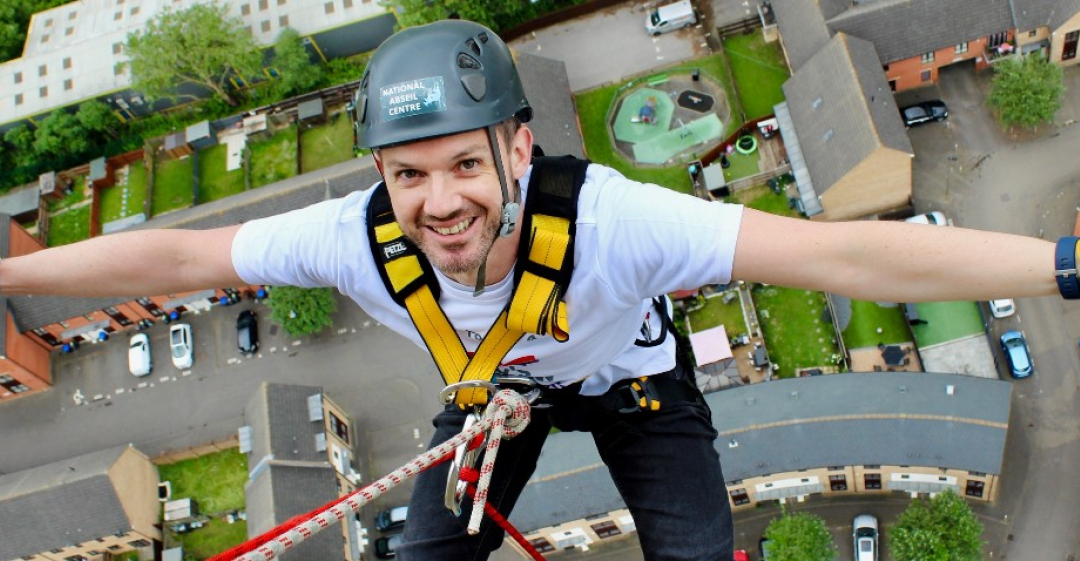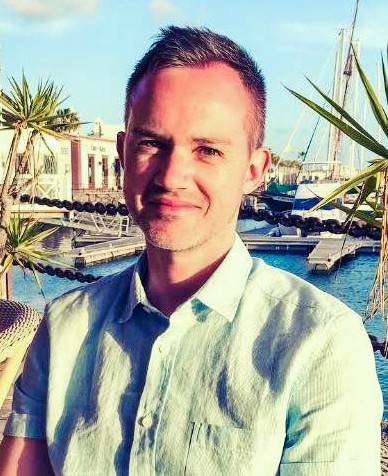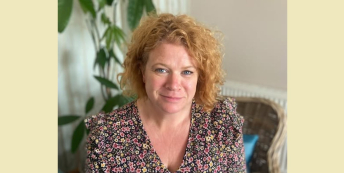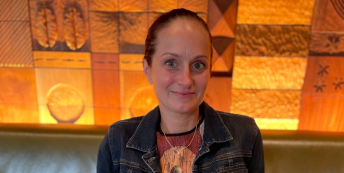“It was difficult for me to believe I could do anything else.”

What work were you doing previously?
I was a Volunteer Manager for a charity that I'd been with for eleven years, helping young people who are really struggling with their mental health.
What are you doing now?
I now work with the same charity but on their website.
It's very user-focused, supporting young people who use the website, moderating user-generated content, including the message boards. It's also quite a creative role in that I can write material for the website.
How did you feel in your work before you decided to make the change?
The first few years were pretty good, but it had got to a point where I started to feel really stuck and like I was going nowhere. I was doing the same things week in, week out.
Something that was really starting to become difficult for me was the nature of the work itself. It was emotionally demanding, dealing with young people who are really struggling with their mental health.
And I was working late nights. Sometimes I wasn't getting home until the early hours of the morning and then I'd have to be back in the office a few hours later.
Why did you change?
I found myself feeling completely drained all the time.
It was affecting my work-life balance. I felt like I was at work all the time. It was difficult for me to take annual leave. I wasn't getting any breaks during the day.
After years of that it really took its toll on me. I ended up off work for six months with burnout, and I knew that something needed to change.
But it was hard for me to see myself doing anything else but that role.
When was the moment you decided to make the change?
At work I’d started ‘acting up' into a managerial role (taking on the duties of a more senior role), which I did alongside a managerial apprenticeship.
That was the moment that I knew I had to get out of that job, because I really hated being a manager. I felt like such a disappointment at the time. I felt as though I was letting myself down because I didn't feel I was doing a good job as a manager.
It was a six-month acting up period and at the end of those six months I had the opportunity to make it a permanent post. My manager encouraged me to do that, but I just had to say no. It wasn’t for me, I didn’t enjoy it, and I felt really removed from the front line.
So that left me back in my old job, wondering 'where do I go from here, because I can't work my way up the ladder?'.
I felt really stuck and frustrated. I joined the Career Change Launch Pad at that point.
How did you choose your new career?
Through the Launch Pad I discovered the power of the informational interview.
I did a lot of these with a whole range of different people around the world, some of whom were in jobs that really interested me, while some were doing jobs that I didn't even know existed until I'd put my feelers out.
I always thought that I'd need to be looking outside of my organisation, making a big move elsewhere. But it dawned on me that maybe there was a job in my organisation that would fit.
I still liked the values of the organisation and what they do, but I knew that the role I was doing wasn't right for me.
I got in touch with somebody who worked in another team at my organisation, emailing them to ask if I could find out more about what their team does.
I knew that they mostly worked from home and that was something that I wanted to do, having experienced some of that during Covid lockdowns.
I had a chat with them, and asked lots of questions. I knew about their team but never really knew what they actually did, so to have that informational interview was so enlightening.
A few weeks later they dropped me an email and said 'we've got somebody going on maternity leave and we have an opportunity for a secondment, would you be interested?'. I said ‘yes’.
Are you happy with the change?
Yes.
It's been such a good thing for my wellbeing overall.
I'm working from home full-time now, working four days a week rather than five (albeit I'm still doing 35hr weeks) which works really well for me.
That extra day off in the week has given me time to do other things, so I've started learning a new language. Even just cutting out commute times has given me so much more time in the week to focus on other things.
I’m also able to take breaks to practice yoga or meditate, the things I love. I also don't do ridiculously late nights.
And it’s a really rewarding role because I have some front line contact with our site users, which I wasn't really getting from the managerial work I was doing before.
I’ve also been able to continue to do the occasional sessional/overtime shift in my former role to earn some extra money. This is great as it means I get to be selective about any extra work I take on, and it also allows me to get out of the house now and again and keep in touch with my old team.
How did you go about making the shift?
After being offered the secondment, I had to go through an application process and an interview process but that was fine.
I think the informational interview gave me a huge advantage. I was interviewed by the person who did the informational interview with me so they already knew me, and they knew how keen I was to do something different.
The offer of a six month secondment gave me a good chunk of time to try the job out, then luckily a full time vacancy became available during the secondment.
How did you develop (or transfer) the skills you needed for your new role?
I had some training in my induction as there were aspects of the role that were new, but I was familiar with the charity, their ethos, and their way of working.
There were also some aspects of my old job in the new role.
What was the most difficult thing about changing?
Overcoming my own self-doubt!
Having been in the same role for such a long time it was difficult for me to believe I could do anything else. Of course, this was a distorted belief and my mind had become my own worst enemy.
The benefit of taking the secondment was that it gave me the chance to try something different, yet I knew I could also return to my previous job if things didn’t work out.
What help did you get? 
I kept in touch with people from the Launch Pad, setting time to talk to them regularly and keep each other accountable.
They could be the biggest source of motivation and inspiration.
What have you learnt in the process?
It's become the norm now for me to reach out to people who do interesting work and ask if I can have a short chat with them about what they do.
You never know where they could lead.
I got in touch with someone who works for the London Mint and asked about what they do. We chatted for about the first five minutes about what they do for their job, then the rest of the time about other stuff and we've since become friends who chat every week.
What would you advise others to do in the same situation?
I cannot understate how powerful informational interviews have been in my shift, and life.
I did at least sixty informational interviews before the one that led to where I am now. I recorded the majority of them, with their permission. If you can record them, I’d recommend doing that because you do miss stuff in the moment.
Being able to listen or watch back is really valuable. And if you want to follow up with them about something they said, you can easily reference the conversation.
I’d also suggest speaking to people who maybe don't love their role, in an area you’re exploring. It should give you different angles on things.
Paul took part in our Career Change Launch Pad. If you're ready to join a group of bright, motivated career changers on a structured programme to help you find more fulfilling work, you can find out more here.



